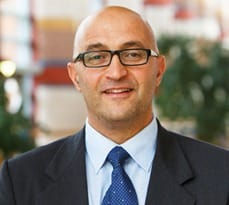There are 4 business models that firms can use to take advantage of circular economy principles, Professor Khaled (Khal) Soufani of Cambridge Judge tells the Swedish Parliament.

There are 4 business models that companies can tap to take advantage of circular economy principles, Professor Khaled Soufani of Cambridge Judge Business School told a Swedish Parliament conference on the theme of the circular bioeconomy. The conference included participants from EU national parliaments, the European Parliament and a number of youth organisations.
Khal, Director of the Circular Economy Centre and Management Practice Professor of Financial Economics & Policy at Cambridge Judge Business School explains that the 4 possible models are:
- closing the loop (where materials and energy are recycled within the system through reuse, remanufacturing, repurposing and recycling)
- slowing consumption and challenging planned obsolescence
- intensifying use of an asset
- dematerialising (where product utility is provided without hardware but through service and software solutions).
Khal’s presentation (see video at 4:26:55) to the Swedish Parliament’s Committee on Environment and Agriculture on 20 February was part of an effort by Sweden, which holds the rotating European Union presidency, to advance a more “innovative, resource efficient and competitive Europe,” the Swedish Parliament says on its website.
The conference aimed to look at the EU’s bioeconomy strategy by highlighting examples and best practices from different sectors and parts of Europe.
“When we think about the circular economy and business models it’s very important to understand that the circular economy is not a homogeneous concept” as it can possibly tie into many elements of a firm’s business practices, said Khal, who is also Director of the Executive MBA (EMBA) programme at Cambridge Judge. He emphasised the word “possibly”, because circular economy principles may be applicable to some but not all industries or firms.
“We need to understand the value proposition” that circular economy principles can deliver, he said. “Will it solve an existing problem? Will it add value to the end user, consumer or business-to-business?” And then how do we deliver and capture the value? “For corporations to buy into this idea they need to realise that there is a financial viability of the business model, there is efficiency, and there is productivity,” said Khaled.


